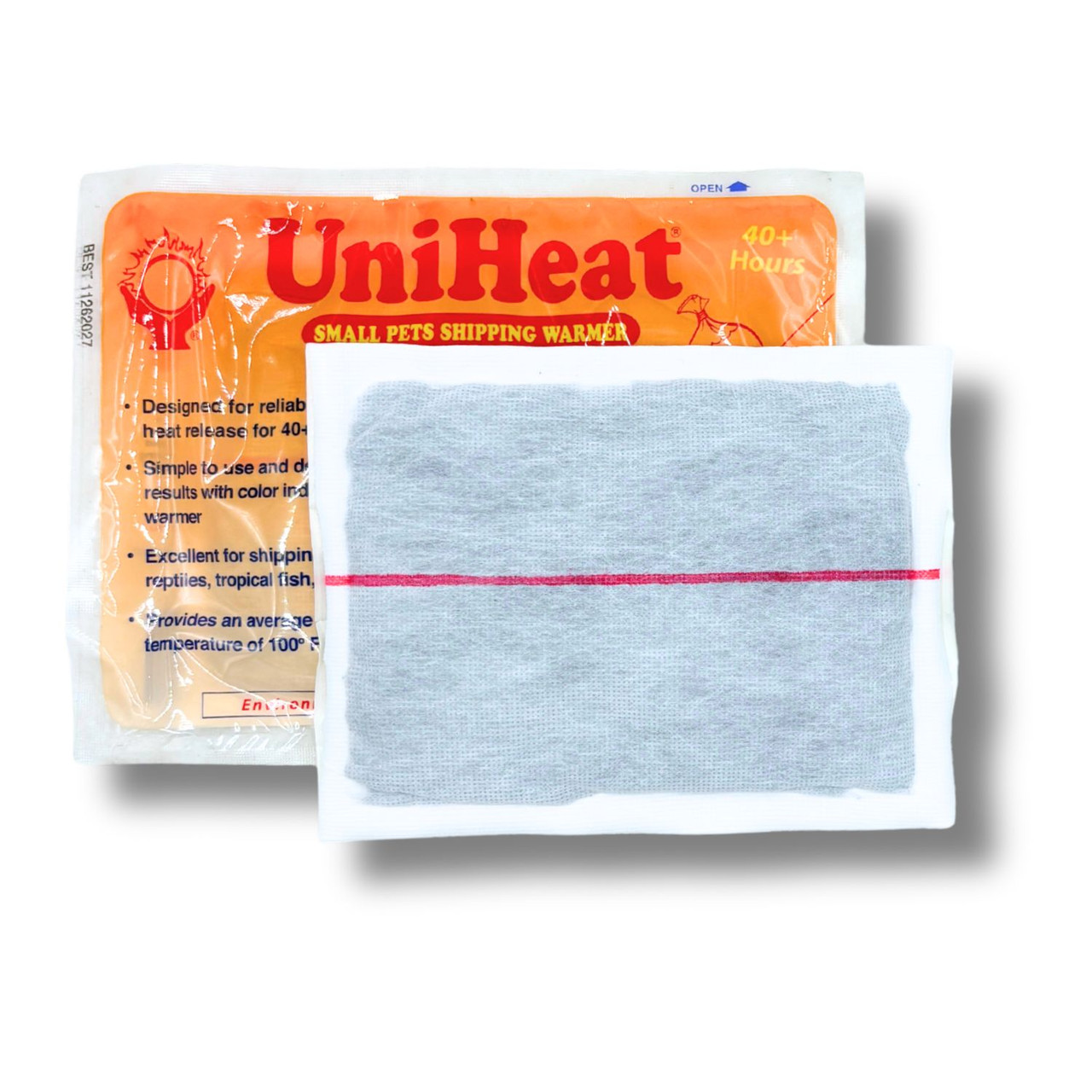Posted by UniHeat, Your Shipping Warmer Experts on 23rd Sep 2025
Shipping Tropical Fish Safely in Winter: Tips for Success
Shipping tropical fish during the winter months requires extra preparation. Cold snaps, snow, and below-freezing conditions can stress or even harm delicate species if shipments aren’t packed correctly. With the right heat packs, insulation, and planning, you can keep your fish safe from door to door. Here’s how UniHeat warmers make it possible.
Why winter shipping is challenging
Tropical fish thrive in water temperatures far warmer than typical winter conditions. Even brief exposure to freezing air during carrier transfers can cause temperature shock. Without the right safeguards—insulation and dependable heat—fish may not survive the journey. This is why pairing Styrofoam-lined boxes with long-lasting heat packs is critical.
Choosing the right UniHeat warmer
UniHeat packs are designed specifically for live animal shipping, including tropical fish. Selecting the proper duration depends on your route and climate:
- 40 Hour: Suitable for overnight or mild winter routes.
- 72 Hour: The standard for most 2–3 day shipments.
- 96 Hour: Best for cross-country or international shipping in harsh cold.
Best packing practices
- Insulate the box: Use Styrofoam liners or thermal panels to create a stable microclimate.
- Position heat packs correctly: Place on top of insulation, never directly against bags. Ensure ventilation so the pack activates properly.
- Bagging fish: Double-bag with conditioned water and oxygen. Cushion bags to prevent shifting during transit.
- Timing shipments: Ship early in the week and check weather forecasts to avoid weekend or storm delays.
Recommended UniHeat warmers
Here are the most effective UniHeat options when shipping tropical fish in winter:
Frequently Asked Questions
1) Can tropical fish survive winter shipping?
Yes, when packed properly with insulation and the right UniHeat warmers. Without preparation, freezing conditions can be fatal.
2) Which UniHeat pack is best for shipping tropical fish?
Most shippers use the 72 Hour warmer for winter. For long-haul or international routes, the 96 Hour is recommended.
3) How do I prevent heat packs from touching fish bags?
Always place the warmer on top of insulation, separated from the bags. This keeps the warmth even without direct contact.
4) Should I ship fish during snowstorms?
If severe storms are forecast, it’s safer to delay. Always ship early in the week to avoid weekend delays.
5) Are UniHeat packs reusable?
No, all UniHeat warmers are single-use, designed to deliver consistent heat for the stated duration only.





